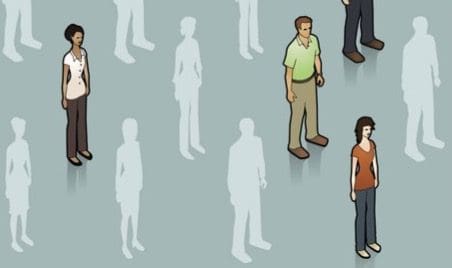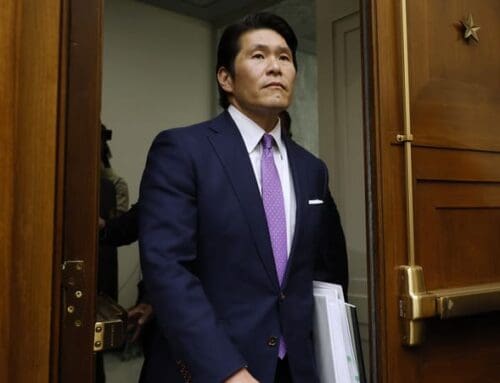

The right education for the modern world
“Imagine what Julius Caesar would have done with a diploma in military studies!”
So spoke a cartoon character in a joke set in ancient Rome in about 50 BC. I am reminded of this whenever I hear – and I hear it more and more frequently – “ We are not giving our children the right education for the quickly changing modern world”. What education might that be? And surely the statement is a bit paradoxical? If the world is changing so rapidly, by the time a child finishes her twelve-year school education, the world will be different from the one she was educated for. I don’t believe there can ever be an exclusive education aimed specifically at a single world. What is needed is a general education for all worlds.
(I am going to use “he” and “she”, “his” and hers” interchangeably because I don’t know how to deal with the singular personal pronoun anymore. “He or she” is clumsy, “they” is ungrammatical” and the new woke words are ghastly.)
Here is what I believe to be the right education for the modern world or any other world (the right education for being useful to the modern world, not the right education for getting a job, which can be a different matter.) The core of this education is the three Rs (reading, writing and arithmetic). Every pupil must be proficient in her home language. She must be able to read easily and understand fully what she is reading; she must be able to express herself clearly, and with a logical flow in her written and spoken word. That is the core essential. That teaches her how to think.
Then she must be taught a second language, mainly because children are better at learning languages than adults. In addition, she should be taught some subjects to arouse her wonder and stimulate her curiosity. These subjects could be history, physics, poetry, botany, geography or others; it doesn’t really matter which, because all can be quickly learnt after school by anybody proficient in the three Rs.
With such a core education, any school leaver could rapidly gain enough understanding of any new technology or economy to get useful employment in it. The trouble with most school leavers in South Africa today is not that they have been taught the wrong subjects, but that they have not been taught anything at all. They cannot read with understanding, they cannot express themselves clearly in writing, their mathematics is abysmal. This failure goes beyond schools and is even found at tertiary level.
A friend told me about her friend who had a job editing the PhD theses of South African university students. It drove her mad and she soon had to give up. The writing was so appalling it gave her a headache. There was no clarity of thought, no logical flow and no attempt at consistent expression. There was no plain English. Instead there was endless muddled jargon and long silly words joined together in long meaningless sentences. It seemed as if they were deliberately trying to render mysterious and significant their painfully obvious premises – ”peace is good;”war is bad”, “the future lies ahead”, and so on – by converting them into impenetrable gobbledygook.
You might say that the ideal education I describe was available at good schools in England four hundred years ago. I’d go further and say that a school leaver from a good school in England four hundred years ago was better prepared for 2022 than a school leaver from the same school today. This is because educational standards have dropped in the English-speaking world.
A spectacular example is the famous 1898 entrance exam for eleven-year-olds applying for places at King Edward’s School in Birmingham. Google it. I bet none of you could pass it. It demands incomparably more general knowledge and rigorous thinking than anything taught in schools today. In South Africa and England there has been a dramatic lowering of school standards, as you can see in the inflation of A passes in matric.
Our science and technology today are more advanced than in the past, but that is because our scientists and engineers have built on the work of their predecessors, not because our science education is any better. I know more about nuclear power than Einstein or Oppenheimer did in 1936, but that is not because I am cleverer (I’m certainly not); it’s just that I have learnt from their work.
Julius Caesar is of interest in this discussion. He was a terrible man, vain, arrogant, corrupt and immeasurably cruel. He laid waste the countries he conquered, sometimes committing mass murder on a scale approaching genocide. He also laid the foundations of Western civilisation, the greatest civilisation there has ever been. You are reading this article in Roman letters because of him. You will notice him if you look at the seventh month in your calendar. All his great work was done by military force. From his record and legacy, he must be judged the greatest soldier in history. Yet he had no military education at all, as far as I know. Being an upper class Roman, in his childhood he probably had a Greek tutor, who would have taught him rhetoric (developing his skills in comprehension and expression, so that he wrote fine, clear Latin) and mathematics. That seemed to be all he needed to conquer the world.
That was over two thousand years ago. What about today? Consider the most spectacular technological revolution of our age – of any age – the information technology revolution, based on replacing the radio valve with a transistor and then making the transistor smaller and smaller so that, according to Moore’s Law, computer speed doubles every two years. Perhaps the most famous person in the development of computing (computing not computers) is Bill Gates, who dropped out of university. He never got a degree in Computer Science. In fact, he never got a degree in anything. Yet he changed the world of computing, for the better, for the benefit of a multitude of fairly stupid people such as me, all around the world.
An educational organisation called “EdSmart” has published a list of the “20 Most Useless College Degrees”; one of them is Computer Science. I suppose this degree would give you a broad understanding of the history of computing and of computer architecture, which might be a worthwhile background, but probably would not get you a specific job in computing. Usually computer companies select candidates by an in-house examination in which a woman with a degree in languages might do better than one in computer science (which is exactly what happened to a friend).
It seldom happens that an employer, especially a big employer, gets the person he needs for doing a certain job. In fact it seldom happens that he knows what person he needs. So he resorts to another basis of selection, which is by class. In every society or organisation there are those who give orders (who get highly paid) and those that follow them (who don’t).
In the olden days, class was decided by birth. Today it is largely decided by whether you’ve got a university degree or not, and what university you got it from. In the past, the top job would go to a duke; today it goes to a graduate from Harvard. Students attend universities for two main reasons, to get a better paying job and to get higher status. I have been appointed to good jobs entirely because of my status in having a degree. In several of these jobs I became quickly aware that people below me, without degrees, earning less than me, obeying my orders, could do my job better than me. (I’d better clarify this statement. The highest paid job I ever had was as a Shift Manager at a mill in Bury, just north of Manchester. My job consisted of wandering around the factory, drinking big mugs of tea and asking the foremen what to do. When the foremen told me, I told other people to do just that. That’s what I mean by “obeying my orders”.) But if big employers do not select on the basis of university status, I’m not sure how they could do so.
It does sometimes happen, although not often, that what you learn at university is directly applicable in your work. Dentistry is an example. I have degrees in physics and in engineering, and I did find that the thermodynamics I learnt at university was directly applicable in the power station I worked in afterwards. An expert team from Eskom was doing an efficiency test on a turbine using exactly the same methods and steam tables that we were taught at university.
Usually, though, the engineering degree just gives a good theoretical background so that later you can develop specific knowledge about particular machines and processes. In my case, I found it did that as well. Sometimes the theoretical background is absolutely necessary in the development of a technology. Welding is a good example. In the early days when welding replaced riveting on ships and boilers, there were many disastrous failures, with loss of life. This was because metallurgy was poorly understood.
After IT, I should say that the greatest technological advance in our age has been in materials science, which includes metallurgy. It is extremely complicated and difficult. (If you look out of your aeroplane window, you will see that all the wings and fuselage are riveted. It is still impossible to weld the aluminium used in aviation. The heat of welding damages the grain structure of the hardened aluminium.)
Today, in any big factory or power plant, you must have the advice of metallurgical engineers. But the man doing the welding doesn’t need any understanding of materials science. All he needs to do is follow instructions for each job, using the prescribed welding method and the prescribed welding materials. (This brings up the subject of tradesmen and the training of pupils unsuited to academic study in practical skills such as fitting and turning, welding, toolmaking and so on. But that’s for another article.)
Unfortunately, there is often a big difference between the qualifications necessary to be useful and the qualifications necessary to get a highly paying job. In the modern world, a useless person can earn a top salary. In big companies particularly, salaries do not follow supply and demand.
Often desperately needed employees earn less than employees who are not needed at all. If a big factory advertises for a refrigeration mechanic (always highly useful) and a head of human resources (often completely useless), it will get a flood of applicants for the latter and few, if any, for the former. But it will always pay the human resources man more than the mechanic. This is entirely because of the class system, once again. Big companies pay employees by their status, not their usefulness. A fridge mechanic has low status, the head of HR high status. Status is often defined in big corporations by the Paterson Job Grading System, which is a detailed system of industrial class division. I’m not sure what the lesson is in this.
But I am sure of the right education to be useful in the modern world: reading, writing and arithmetic.
The views of the writer are not necessarily the views of the Daily Friend or the IRR.
If you like what you have just read, support the Daily Friend.









